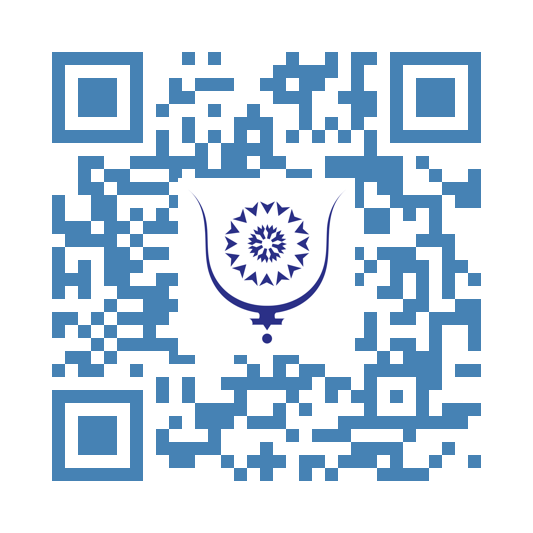Travel Diary #4: Australian east coast in a minivan 10294
As I mentioned at the end of the previous article, the journey was long: about 35 hours, including two 5-hour layovers in Addis Ababa and Singapore before arriving in Melbourne.
We planned to stay in a hotel for 3 nights before renting a minivan for our road trip along the Australian East Coast. In addition to the change of scenery, arriving in a modern city, when we reached the hotel, a white parrot with a yellow crest perched on a lamppost reminded us that we were still far from home.
During our rest, we took the time to explore Melbourne and meet up with a colleague from nearly 10 years ago. We spent a wonderful day together visiting a museum, the library, enjoying drinks on a rooftop terrace, and, most importantly, chatting! There are some people you reconnect with after years, and it feels like you saw them yesterday...
The day of our road trip departure arrived, and we took the keys to our home and transportation for the upcoming month. It was a minivan with a small bunk area, which allowed my son to have a bed. It's more expensive than a tent but far less of a hassle to set up and pack away every day. Plus, given Australia's reputation as a rather hostile environment, we figured we'd be more comfortable in the van than on the ground. The beds turned out to be very comfortable.
We began by following the coast southwest of Melbourne, known as the Great Ocean Road. It truly lives up to its name. The coastline is hilly and offers stunning views of the bright blue ocean below. The next day, we got acquainted with the local wildlife during a hike at Kenneth River: koalas, wallabies, and kangaroos. Continuing along the Great Ocean Road, we visited the breathtaking cliffs of the Twelve Apostles.
Next, we headed east of Melbourne for two nights at Wilson Promontory. This is a mountain by the sea in a national park. A relatively challenging 1.5 hour hike with steep elevation gave us a panoramic view of the park. The coastline alternates between mountains and beaches, providing yet another breathtaking viewpoint. We were truly spoiled. But it wasn’t just one sense that was stimulated; since the start of our road trip, the scent of eucalyptus forests has been very pleasant.
After two nights in the park, we found a last-minute small bar/bistro that allowed campers to stay for free at the back of their property: the Bellbird. We had some great encounters there. The owner, Gary, and an elderly couple traveling in a caravan (the man was 78) joined us for a beer, and we struck up a friendship. On our way back to our camper to prepare dinner, they invited us to open a bottle of Shiraz 2022. It was delicious, complex, and not too tannic. We shared our travel plans with them, telling them we wanted to head toward Canberra for a wine tasting. They were at the end of their 3 months journey and were heading back to their home in the suburbs of Canberra in two days. They offered us to stay with them, and we accepted in exchange for me cooking them a meal. We had a wonderful evening together. It's a strange and pleasant feeling to be so comfortable with people you barely know.
The next day, we continued towards the coast. Upon reaching Sydney, on the advice of our new friends, we set up our base camp at a campsite just outside the city. There are efficient water taxis at an unbelievably low price compared to parking fees. We arrived by boat to the city center, right next to the famous Opera House. We explored the area to the west on our first day. The next day, we returned to the city center, but the weather was less favorable. It was raining. We took advantage of the weather to visit the Hyde Park Barracks Museum, which explains how the first convicts built this building and the city's first structures and roads. We wandered through a few shops and encountered lots of people; something we weren’t used to anymore. Checking our phones, we realized it was Black Friday!
After this crowd immersion, we returned to nature for a hike in the Blue Mountains northwest of Sydney. These mountains are actually more like cliffs overlooking a canyon. We enjoyed some beautiful viewpoints and watched parrots gliding through the air.
We then made our way back to the coast, north of Sydney, where we spent three days along the coast, walking, swimming, and camping by the sea. We finally arrived in Byron Bay. It’s a very touristy destination, but it lives up to its reputation. Despite the slightly commercialized town center, the beaches are magnificent, surrounded by rocks that form little coves, offering protection from the various sea dangers: sharks, jellyfish, rip currents, etc. We took the opportunity to go kayaking in the hopes of meeting dolphins. No luck with the dolphins, but we did manage to ride some waves with the kayaks, which was still an amazing experience.
Next, we headed to Brisbane, where we stayed for just half a day. We used the same method as in Sydney. Since a river runs through the city, a ferry service took us to the city's key attractions.
Our next stop was Noosa Heads beach for a 2 hour surfing lesson. The whole family gave it a go, and we had a blast trying to stand up on the boards. One of the best nights of sleep since the beginning of our travels followed.
We hadn’t planned to go much further north, but we decided to exceed our budget to visit the Great Barrier Reef. There’s a departure point in Bundaberg, which is a 3 hour drive away. From there, a small tourist plane flew us to an island called Lady Elliot. The island has just enough space for a dirt airstrip that cuts the island in half. On one side are a few bungalows and a small restaurant for those lucky enough to spend a few days there, and on the other side is a lagoon where we did some snorkeling. This is the very beginning of the Great Barrier Reef, and what a sight it was! Colorful corals and literally hundreds of sparkling fishes.
To wrap up our road trip, we had three days to return to Brisbane and drop off our camper. Unfortunately, the weather wasn't on our side. It rained a lot. Still, we managed to visit a few coastal towns and swim in the ocean a few times.
After all, we’ll have to get used to the humidity, it's rainy season at our next destination!






